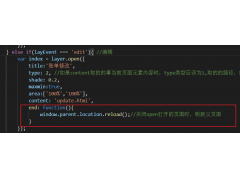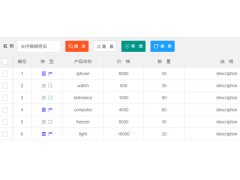MongoDB: Counting how many of each distinct values there are?(MongoDB:计算每个不同的值有多少?)
问题描述
I have a collection of documents holding a list of feedbacks for different items. It looks something like this:
{
{
item: "item_1"
rating: "neutral"
comment: "some comment"
},
{
item: "item_2"
rating: "good"
comment: "some comment"
},
{
item: "item_1"
rating: "good"
comment: "some comment"
},
{
item: "item_1"
rating: "bad"
comment: "some comment"
},
{
item: "item_3"
rating: "good"
comment: "some comment"
},
}
I want a way to find out how many different ratings each item got.
so the output should look something like this:
{
{
item: "item_1"
good: 12
neutral: 10
bad: 67
},
{
item: "item_2"
good: 2
neutral: 45
bad: 8
},
{
item: "item_3"
good: 1
neutral: 31
bad: 10
}
}
This is what I've done
db.collection(collectionName).aggregate(
[
{
$group:
{
_id: "$item",
good_count: {$sum: {$eq: ["$rating", "Good"]}},
neutral_count:{$sum: {$eq: ["$rating", "Neutral"]}},
bad_count:{$sum: {$eq: ["$rating", "Bad"]}},
}
}
]
)
The format of the output looks right, but the counts are always 0.
I'm wondering what's the properway of summing things up by looking at the distinct values of the same field?
Thanks!
You were very close, but of course $eq just returns a true/false value, so to make that numeric you need $cond:
db.collection(collectionName).aggregate([
{ "$group" : {
"_id": "$item",
"good_count": {
"$sum": {
"$cond": [ { "$eq": [ "$rating", "good" ] }, 1, 0]
}
},
"neutral_count":{
"$sum": {
"$cond": [ { "$eq": [ "$rating", "neutral" ] }, 1, 0 ]
}
},
"bad_count": {
"$sum": {
"$cond": [ { "$eq": [ "$rating", "bad" ] }, 1, 0 ]
}
}
}}
])
As a "ternary" operator $cond takes a logical condition as it's first argument (if) and then returns the second argument where the evaluation is true (then) or the third argument where false (else). This makes true/false returns into 1 and 0 to feed to $sum respectively.
Also note that "case" is sensitive for $eq. If you have varing case then you likely want $toLower in the expressions:
"$cond": [ { "$eq": [ { "$toLower": "$rating" }, "bad" ] }, 1, 0 ]
On a slightly different note, the following aggregation is usually more flexible to different possible values and runs rings around the conditional sums in terms of performance:
db.collection(collectionName).aggregate([
{ "$group": {
"_id": {
"item": "$item",
"rating": { "$toLower": "$rating" }
},
"count": { "$sum": 1 }
}},
{ "$group": {
"_id": "$_id.item",
"results": {
"$push": {
"rating": "$_id.rating",
"count": "$count"
}
}
}}
])
That would instead give output like this:
{
"_id": "item_1"
"results":[
{ "rating": "good", "count": 12 },
{ "rating": "neutral", "count": 10 }
{ "rating": "bad", "count": 67 }
]
}
It's all the same information, but you did not have to explicitly match the values and it does execute much faster this way.
这篇关于MongoDB:计算每个不同的值有多少?的文章就介绍到这了,希望我们推荐的答案对大家有所帮助,也希望大家多多支持编程学习网!
本文标题为:MongoDB:计算每个不同的值有多少?


基础教程推荐
- 如何使用sencha Touch2在单页中显示列表和其他标签 2022-01-01
- 为什么我在 Vue.js 中得到 ERR_CONNECTION_TIMED_OUT? 2022-01-01
- Javascript 在多个元素上单击事件侦听器并获取目标 2022-01-01
- 如何在特定日期之前获取消息? 2022-01-01
- 每次设置弹出窗口的焦点 2022-01-01
- jQuery File Upload - 如何识别所有文件何时上传 2022-01-01
- Node.js 有没有好的索引/搜索引擎? 2022-01-01
- 如何使用 CSS 显示和隐藏 div? 2022-01-01
- WatchKit 支持 html 吗?有没有像 UIWebview 这样的控制器? 2022-01-01
- 什么是不使用 jQuery 的经验技术原因? 2022-01-01

















